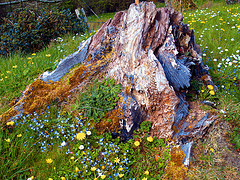Feb 6, 2012 2
Scientific Bias
I heard someone on the radio yesterday say, “That’s the scientific bias: If you don’t know what causes something, then it doesn’t exist.”
That is not the scientific bias. The scientific bias says no more and no less than, “If you don’t know why something is happening, then you should develop a hypothesis about why it’s happening and devise controlled experiments to test your hypothesis.”
This is not a bias; it is a model for separating plausible hypotheses from their opposite.
The unscientific bias, by contrast, says, “If I can’t clearly articulate my hypothesis, or testing my hypothesis would be difficult or impossible (because it depends on the existence of immaterial beings that cannot be detected by our senses or any instruments we may possess), then science must be wrong.”
You don’t have to be “scientific” or apply the scientific method to the problem you are hoping to solve.
Choosing not to follow this approach, however, does not vindicate your belief or highlight the shortcomings of a method you implicitly subscribe to every time you start your car, boot up your computer, or turn on your microwave.
It only shows that you have decided to eschew the truly scientific bias: rigor.


